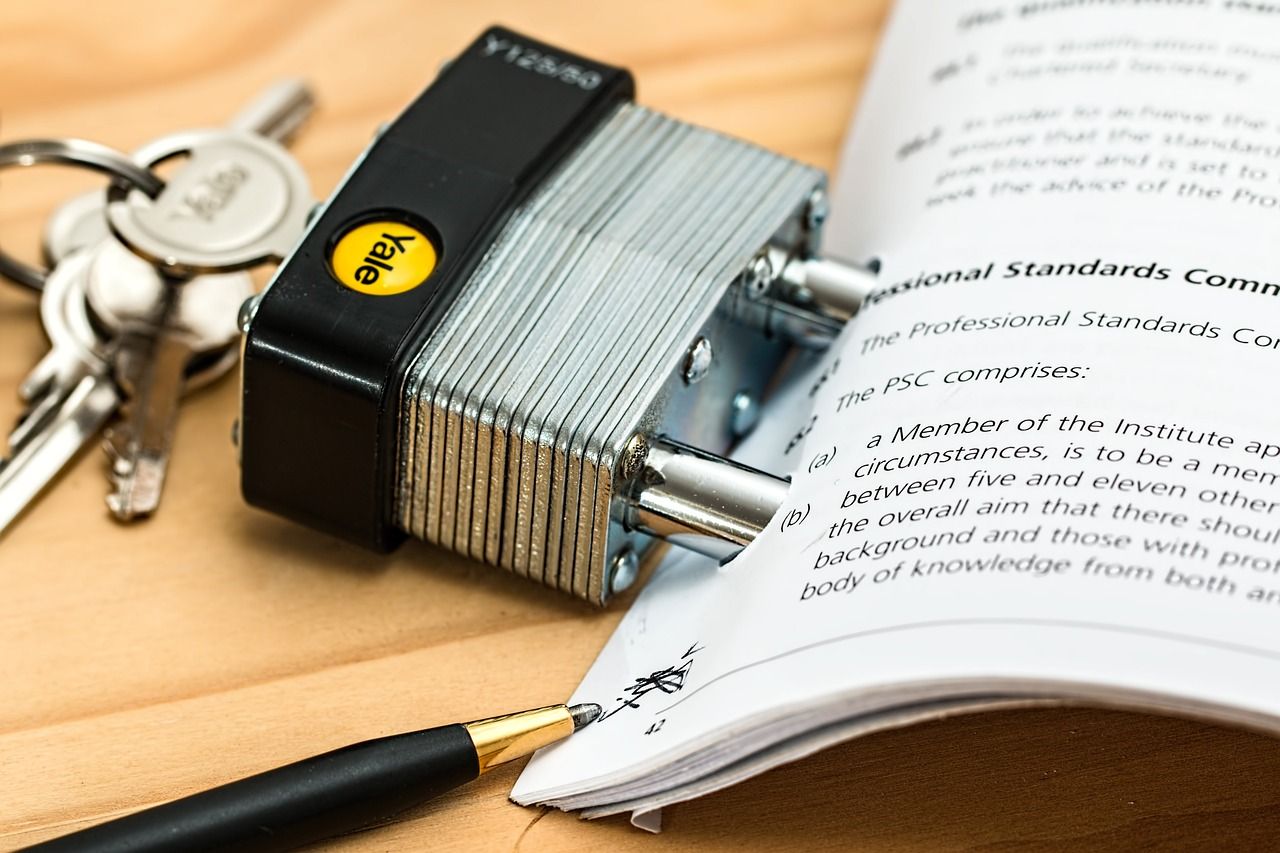The legality of web proxy servers has become a major concern due to the widespread use of web proxy servers as a tool for individuals and businesses looking to maintain privacy, security, and unrestricted access to global information.
However, the legality of using such technologies can vary significantly from one jurisdiction to another.
This article explores the nature of web proxy servers, and their common uses, and delves into the legalities of employing these services in Canada and the United States.
What is a web proxy server?
A web proxy server acts as an intermediary between your device and the internet. It allows users to hide their IP address and browse the internet anonymously by routing their web requests through the proxy server.
This not only helps in maintaining online anonymity but also enables users to bypass geo-restrictions and access content that may be blocked in their country.
By using a web proxy server you can watch shows and movies on Netflix, Hulu, and HBO that are not available in your region.
If you are looking to learn more about web scraping proxy, then we have an in-depth article that goes through the low-level concepts in web scraping.
What are the common uses of web proxies?
The reasons for using web proxy servers are varied and include:
Privacy: To prevent websites from tracking their real IP address and location.
Security: To protect against malicious websites and hackers by hiding the user's real IP address.
Access to Restricted Content: To bypass geo-restrictions and censorship, allowing access to a broader range of information and media.
Network Performance: To reduce loading times and bandwidth by caching web pages.
Still not sure why you would require proxy rotation in web scraping. We go in-depth in this article.
Are proxy servers legal in Canada and USA?
Canada
In Canada, the legal framework around proxy servers falls primarily under the Personal Information Protection and Electronic Documents Act (PIPEDA) and provincial privacy laws. Recent amendments to Canadian privacy legislation have strengthened data protection requirements but haven't introduced restrictions on proxy usage itself.
The 2022 Digital Charter Implementation Act and subsequent regulations have established clearer guidelines for data collection practices, but using proxies for legitimate business purposes remains permissible.
Legal Framework for Web Scraping in Canada
Here is what the Office of the Privacy Commissioner of Canada has to say regarding the protection of personal information, especially in the context of data scraping:
1. Publicly Accessible Personal Information:
Even if personal information is publicly accessible, it remains subject to data protection and privacy laws in most jurisdictions, including Canada. This means that organizations must still handle such information according to applicable privacy regulations.
2. Obligations of Social Media Companies and Website Operators:
Companies operating social media platforms and websites that host publicly accessible personal data have specific obligations under data protection and privacy laws. They are required to protect personal information from unlawful data scraping and ensure its security against unauthorized access.
3. Data Scraping and Data Breaches:
Incidents involving mass data scraping, where large amounts of personal information are harvested, can be considered reportable data breaches. Organizations must report these breaches to the relevant authorities and take appropriate measures to mitigate any harm.
4. Protecting Personal Information:
Individuals can take proactive steps to protect their personal information from data scraping. This includes using privacy settings on social media platforms and being cautious about the information shared online. Social media companies also play a crucial role in providing tools and settings that enable users to engage with their services while maintaining privacy.
For more detailed information, you can visit the Office of the Privacy Commissioner of Canada's official website and review its guidelines and recommendations on data protection and privacy laws.
USA
In the US, the Computer Fraud and Abuse Act (CFAA) has been central to legal discussions around web technologies. Recent court interpretations have clarified that simply using technical means to access publicly available data doesn't constitute "exceeding authorized access" under the CFAA. The landmark Van Buren v. United States Supreme Court decision (2021) and subsequent cases have further narrowed the application of the CFAA in ways that generally support legitimate proxy usage.
Additionally, the 2023 FTC guidelines on data collection have provided clearer boundaries for businesses while acknowledging the legitimate role of automated data collection in the digital economy.
Legal Framework for Web Scraping in the United States
1. Computer Fraud and Abuse Act (CFAA) Application:
The CFAA targets unauthorized access to computers, including those connected to the internet. While tech companies like LinkedIn and Meta use the CFAA to prevent unauthorized data scraping, accessing publicly available data is generally not considered a violation. The case of hiQ Labs, Inc. v. LinkedIn Corp. highlighted that scraping publicly accessible data does not constitute unauthorized access under the CFAA.
2. Technical Nuances and Authorization:
The application of the CFAA is highly technical, often dependent on specific access methods to a computer. For instance, in Meta v. BrandTotal, the court differentiated between reactive data collection and proactive server access, impacting the CFAA claim's validity. Additionally, the legality under the CFAA can depend on whether access permissions were properly revoked, such as through cease-and-desist letters.
3. Copyright Infringement and DMCA Violations:
Website owners may claim copyright infringement if scrapers copy original elements from their sites. The DMCA also provides for both civil and criminal liabilities against scraping that circumvents technological measures meant to protect copyrighted works. For example, Facebook v. Power Ventures involved copying user data that required a violation of Facebook’s proprietary rights.
4. Technological Measures and Copyright Management Information (CMI):
The DMCA's effectiveness often hinges on the robustness of technological barriers protecting copyrighted data. Courts require strong evidence that technological measures effectively control access. The removal or alteration of CMI, which informs the public about copyright protection, can also lead to DMCA violations if CMI is not properly conveyed with the scraped content.
These points illustrate the complex and evolving legal landscape surrounding data scraping, emphasizing the need for careful navigation of CFAA and DMCA provisions.
What are the risks of misusing proxies?
Misusing web proxies can lead to severe consequences:
- Legal Penalties: Fines or imprisonment for activities like hacking, fraud, or piracy.
- Civil Lawsuits: For violating terms of service or intellectual property rights.
- Data Breaches: Unauthorized scraping can be considered a data breach, requiring disclosure and remediation.
For instance, CanLII filed a lawsuit against entities that scraped its website in violation of its terms of use.
Best Practices for legal proxy usage in 2025
If you're using proxies for business purposes like web scraping, here are some updated best practices to help ensure you stay on the right side of the law:
- Respect Copyright Laws: Do not use proxies to bypass copyright restrictions.
- Avoid Illegal Content: Steer clear of accessing or distributing prohibited material.
- Adhere to Terms of Service: Follow the rules set by websites and online services.
- Stay Informed: Regularly update yourself on the legal frameworks and guidelines in your jurisdiction.
- Respect robots.txt files: These files tell scrapers which parts of a website can and cannot be accessed. Following these guidelines shows good faith compliance.
- Implement rate limiting: Avoid overwhelming target servers with too many requests in a short period. Recent case law has emphasized the importance of "good neighbor" scraping that doesn't burden server resources.
- Identify your scraper: When appropriate, consider identifying your scraper in the user agent string. The 2024 industry guidelines for ethical web scraping now recommend transparency in automated collection activities.
- Be selective about data collection: Only collect the data you genuinely need, and avoid scraping personal information unless you have clear legal grounds and proper safeguards in place.
- Secure your data: Once collected, ensure that any data is stored and processed securely in compliance with relevant data protection regulations.
- Consider formal data licensing: For high-volume, business-critical data collection, explore formal data licensing agreements with the source websites when possible.
Conclusion
Using web proxy servers for legitimate business purposes remains legal in both Canada and the United States. However, how you use these tools matters significantly from a legal perspective. By following best practices, staying informed about evolving regulations, and ensuring your proxy usage doesn't cross into prohibited activities, you can confidently leverage these powerful tools for your business needs.
At DataHen, we specialize in compliant web scraping solutions that respect legal boundaries while delivering the data you need. Our team stays up-to-date with the latest legal developments to ensure our approaches remain within established guidelines. Whether you need market intelligence, pricing data, or content monitoring, we can help you achieve your goals while minimizing legal risks.
Need help with legally compliant web scraping? Contact our team today to discuss how we can support your data needs within the appropriate legal framework.
Note: This article is for informational purposes only and does not constitute legal advice. For specific legal concerns, please consult a qualified attorney.
Frequently Asked Questions
Is it illegal to use a proxy server?
Using a proxy server is not illegal in most countries, including Canada and the United States. It's a legitimate tool for enhancing online privacy, improving security, and even accessing region-locked content. However, using a proxy to conduct illegal activities (like hacking, fraud, or bypassing copyright restrictions) is illegal and can lead to serious consequences.
Is it OK to use a proxy server?
Yes, it’s totally okay—as long as you’re using it for legal and ethical purposes. Many businesses use proxies for data scraping, ad verification, competitive research, and managing multiple accounts. Individuals use them for privacy and bypassing geo-restrictions. Just make sure you're not violating any site’s terms of service or laws.
Can police track proxy servers?
Yes, law enforcement agencies can track activity through proxy servers, especially if the proxy provider keeps logs or cooperates with authorities. While proxies can mask your IP address, they don’t make you invisible—especially if you’re engaged in illegal behavior. Using a proxy is not a foolproof shield from investigation.
What is a ghost proxy?
A “ghost proxy” is not a standardized term, but it's often used to describe proxies that are invisible or hard to detect—either to the websites you're accessing or to monitoring tools. They’re typically used in stealthy web scraping or automation. Just keep in mind: even the most “invisible” proxy doesn’t guarantee total anonymity.
Can proxies steal your data?
Yes—if you’re using an untrusted or free proxy, there’s a risk they could log your activity, steal login credentials, or inject malicious content. Always use reputable proxy providers and secure connections (HTTPS) to minimize this risk. Free is rarely safe when it comes to proxies.
Why use proxies legally?
Using proxies legally gives you all the benefits—privacy, geo-access, and reliable data scraping—without the legal risks. Businesses use them to collect public data at scale, monitor prices, test applications, and more. When done the right way, proxies are a powerful tool to gain insights and stay competitive.


